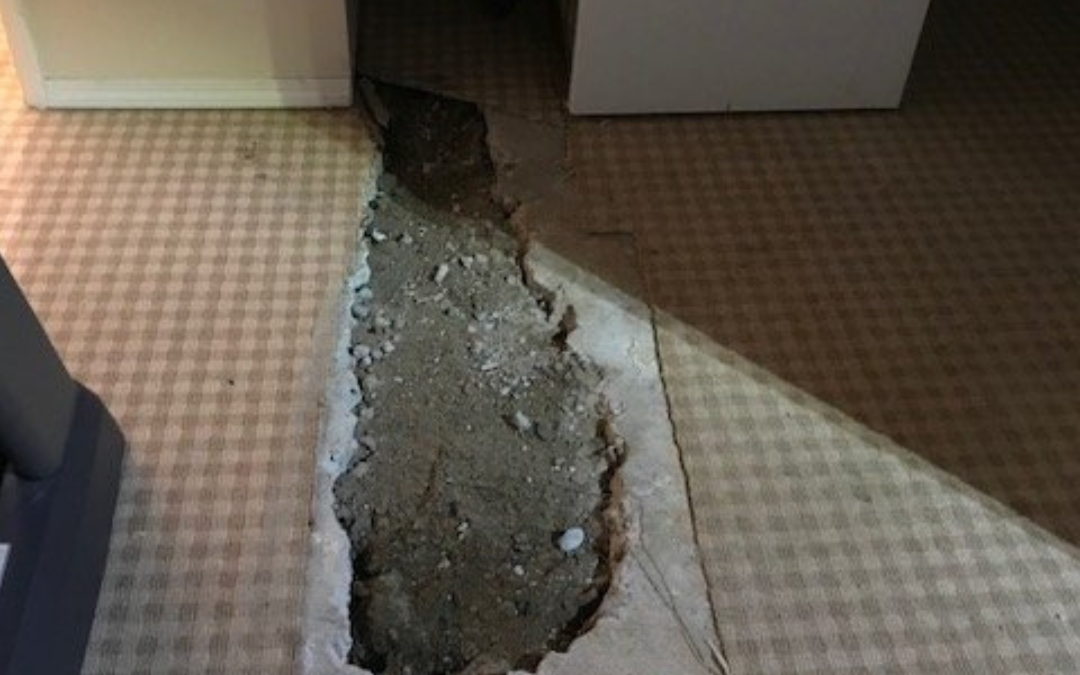Common Causes of Drainage Issues
Improper grading, clogged gutters, broken pipes, and heavy rainfall are common causes of drainage issues. Improper grading can pool water around the foundation when the ground is kept from the property. Clogged gutters prevent proper water flow, leading to overflow and potential water damage. Whether due to age or damage, broken pipes can cause leaks and water accumulation. Additionally, heavy rainfall can overwhelm drainage systems and cause water to collect in undesired areas.
Signs and Symptoms of Drainage Issues
It is essential to recognize the signs and symptoms of drainage issues to address them promptly. Water pooling in specific areas of your property, erosion or washouts in the landscape, dampness or flooding in the basement, and mold or mildew are indicators of potential drainage problems. These signs should be addressed as they can lead to more severe issues, such as foundation damage, landscape erosion, and compromised structural integrity.
Importance of Addressing Drainage Issues
Addressing drainage issues on time is crucial to prevent further damage and avoid costly repairs. Ignoring these problems can lead to long-term consequences that affect the stability and value of your property. By taking proactive steps to resolve drainage issues, you can protect your investment and ensure the longevity of your property.
Solutions for Drainage Problems
Grading and Sloping
One effective solution for drainage problems is proper grading and sloping. By adjusting the slope of your landscape, you can ensure that water flows away from your property. The ground should be graded to direct water towards appropriate drainage areas, such as swales or storm drains. Consulting a professional landscaper or drainage expert can help ensure accurate grading and proper water flow.
Installing French Drains
Another solution for managing excess water is the installation of French drains. French drains are underground drainage systems that redirect water away from the property. They consist of a perforated pipe surrounded by gravel or rock, allowing water to enter the drain and be directed to a suitable outlet. French drains are particularly effective in areas with high water table levels or heavy rainfall.
Rain Gardens and Bioswales
Rain gardens and bioswales are environmentally-friendly solutions that promote effective drainage while enhancing the aesthetic appeal of your landscape. Rain gardens are designed to collect and absorb rainwater, allowing it to infiltrate the ground slowly. Bioswales are similar but act as channels for water flow, directing excess water to desired areas for absorption. These natural solutions not only mitigate drainage problems but also support the growth of native plants and provide habitat for wildlife.
Repairing or Replacing Faulty Drainage Pipes
Drainage issues can sometimes be traced back to damaged or clogged drainage pipes. Inspecting, repairing, or replacing faulty pipes is essential to restore proper water flow. Professional plumbers can diagnose the source of the problem and provide the necessary repairs or replacements to ensure effective drainage.
Prevention Strategies for Maintaining Good Drainage
Prevention is always better than cure, and when it comes to drainage issues, there are several preventive measures you can take to maintain good drainage on your property:
Regular Gutter Maintenance
Keep your gutters clean and debris-free to ensure that water flows smoothly. Regularly inspect and clean your gutters to prevent clogs leading to overflow and water damage. Additionally, consider installing gutter guards to minimize debris accumulation.
Proper Landscaping Techniques
Strategic landscaping practices can contribute to maintaining good drainage. Use porous surfaces, such as gravel or permeable pavers, to allow water to infiltrate the ground. Plan your landscape design to include proper grading and sloping, ensuring water is directed away from your property. Mulching can also help retain moisture in the soil while preventing erosion.
Rainwater Harvesting
Consider implementing rainwater harvesting systems to manage excess water effectively. Collecting and utilizing rainwater for irrigation or other non-potable uses can reduce the strain on drainage systems while conserving water resources.
Hiring Professional Drainage Services
For complex or persistent drainage issues, it is advisable to seek the expertise of professional drainage services. These professionals have the knowledge, experience, and specialized equipment to diagnose and address drainage problems effectively. By hiring experts in the field, you can ensure that the root causes of your drainage issues are identified and resolved correctly.
Conclusion
Understanding drainage issues and taking appropriate measures to address them is essential for the well-being and longevity of your property. By recognizing the causes, signs, and symptoms of drainage problems, you can take proactive steps to prevent further damage. Implementing appropriate solutions and prevention strategies, such as grading and sloping, French drains, rain gardens, and regular maintenance, will help you maintain effective drainage and protect your property investment. Remember, consult professionals who can provide expert guidance tailored to your situation when in doubt.

